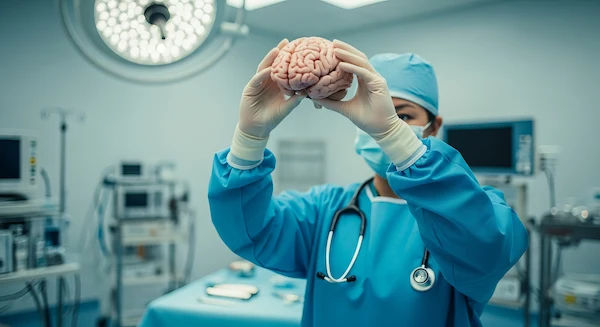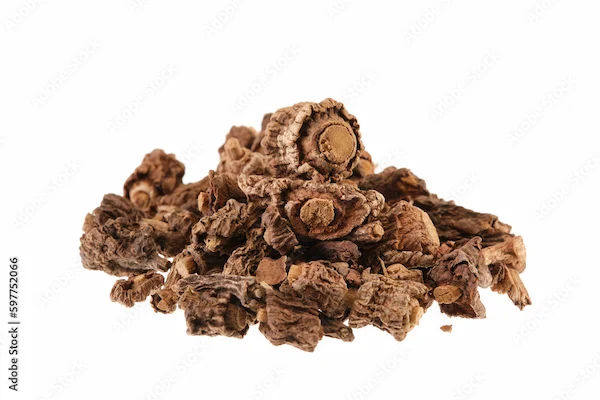Comprehensive Information on Vitamin D
Explore essential information on vitamin D, including its health benefits, natural sources, symptoms of deficiency, and ways to maintain optimal levels for overall well-being.

Written by Dr. Shaik Abdul Kalam
Reviewed by Dr. Mohammed Kamran MBBS, FIDM
Last updated on 10th Aug, 2025

Introduction
Vitamin D is often called the "sunshine vitamin" because our bodies produce it when exposed to sunlight. It plays a crucial role in keeping our bones strong, supporting our immune system, and maintaining overall health. Despite its importance, many people don’t get enough Vitamin D, leading to deficiencies that can affect their well-being.
In this article, we’ll explore what Vitamin D is, why it’s essential, how to recognise a deficiency, and simple ways to maintain healthy levels.
Why Is Vitamin D Important?
Vitamin D is a fat-soluble vitamin that helps your body absorb calcium and phosphorus—two minerals vital for strong bones and teeth. Without enough Vitamin D, your bones can become weak, increasing the risk of fractures and conditions like osteoporosis.
Beyond bone health, Vitamin D also:
Boosts Immunity: Helps fight infections and reduces inflammation.
Supports Muscle Function: Prevents weakness and improves mobility.
Regulates Mood: Low levels have been linked to depression and fatigue
Supports Heart Health: Plays a role in maintaining blood pressure.
Signs You Might Have a Vitamin D Deficiency
Many people with low Vitamin D levels don’t realise it because symptoms can be subtle. Common signs include:
Fatigue and tiredness: Feeling exhausted despite adequate sleep.
Bone and back pain: Aching bones or frequent muscle cramps.
Mood changes: Increased anxiety or low mood.
Slow wound healing: Cuts or injuries take longer to heal.
Hair loss: Severe deficiency may contribute to thinning hair.
Frequent illnesses: Getting sick often due to a weakened immune system.
If you experience these symptoms, it may be worth checking your Vitamin D levels.
What Causes Vitamin D Deficiency?
Several factors can lead to low Vitamin D levels:
1. Limited Sun Exposure
Spending too much time indoors (especially in office jobs).
Wearing sunscreen all the time (while important for skin protection, it blocks Vitamin D synthesis).
Living in regions with long winters or less sunlight.
2. Dietary Insufficiency
Not consuming enough Vitamin D-rich foods like fatty fish, egg yolks, or fortified dairy products.
Following a strict vegan diet (since many natural sources are animal-based).
3. Skin Pigmentation
Darker skin produces less Vitamin D from sunlight due to higher melanin levels.
4. Age and Health Conditions
Older adults have reduced skin synthesis of Vitamin D.
Digestive disorders (like Crohn’s disease) can impair absorption.
Obesity (Vitamin D gets stored in fat, making it less available in the bloodstream).
Consult Top Specialists for Personalised Tips
How to Maintain Healthy Vitamin D Levels?
The good news is that Vitamin D deficiency is preventable and manageable with simple lifestyle changes.
1. Get Safe Sun Exposure
Spend 10-30 minutes in the sun (without sunscreen) a few times a week.
Best time: Mid-morning or late afternoon (avoid peak UV hours).
2. Eat Vitamin D-Rich Foods
Fatty fish (salmon, mackerel, sardines)
Egg yolks
Fortified foods (milk, cereals, orange juice)
Mushrooms (exposed to sunlight)
3. Consider Supplements
If you struggle to get enough from sunlight and diet, supplements can help.
Vitamin D3 (cholecalciferol) is more effective than D2.
Consult a doctor for the right dosage (usually 600–2000 IU/day).
4. Exercise and Maintain a Healthy Weight
Regular physical activity helps with Vitamin D metabolism.
Weight management ensures better Vitamin D absorption.
5. Get Tested Regularly
A simple blood test (25-hydroxy Vitamin D test) can check your levels.
Normal range: 30-50 ng/mL
Deficiency: Below 20 ng/mL
If you suspect a deficiency, consider booking a Vitamin D test through Apollo 24|7 for a quick and accurate check-up.
When to See a Doctor?
If you experience persistent symptoms like extreme fatigue, bone pain, or frequent infections, consult a healthcare provider. They may recommend:
Higher-dose supplements (if deficiency is severe).
Lifestyle adjustments (diet, sun exposure).
Monitoring to avoid excess Vitamin D (which can also be harmful).
Conclusion
Vitamin D is essential for strong bones, a healthy immune system, and overall well-being. While sunlight is the best natural source, diet and supplements can help maintain optimal levels. If you suspect a deficiency, a simple blood test can provide clarity.
Take small steps—spend a little time in the sun, eat nutrient-rich foods, and consider supplements if needed. Your body will thank you for it!
Need a Vitamin D check? Book a test or consult a doctor through Apollo 24|7 for personalised advice.
Consult Top Nutritionists
Consult Top Specialists for Personalised Tips

Dr. Bhukya Pavan Kalyan
General Physician
5 Years • MBBS DNB Paediatrics
Bengaluru
PRESTIGE SHANTHINIKETAN - SOCIETY CLINIC, Bengaluru

Dr. Ramalinga Reddy
General Physician
5 Years • MBBS MD General medicine
Bengaluru
PRESTIGE SHANTHINIKETAN - SOCIETY CLINIC, Bengaluru
Dt. Ila Sharma
Clinical Nutritionist
18 Years • Master in food & Nutrition
Gurugram
VIPUL GREENS - SOCIETY CLINIC, Gurugram
Dr Sumanth R
General Physician
2 Years • MBBS
Bengaluru
PRESTIGE SHANTHINIKETAN - SOCIETY CLINIC, Bengaluru
Dr. Sasikamalam
General Practitioner
1 Years • MBBS
COIMBATORE
Apollo Sugar Clinic Coimbatore, COIMBATORE
Consult Top Nutritionists

Dr. Bhukya Pavan Kalyan
General Physician
5 Years • MBBS DNB Paediatrics
Bengaluru
PRESTIGE SHANTHINIKETAN - SOCIETY CLINIC, Bengaluru

Dr. Ramalinga Reddy
General Physician
5 Years • MBBS MD General medicine
Bengaluru
PRESTIGE SHANTHINIKETAN - SOCIETY CLINIC, Bengaluru
Dt. Ila Sharma
Clinical Nutritionist
18 Years • Master in food & Nutrition
Gurugram
VIPUL GREENS - SOCIETY CLINIC, Gurugram
Dr Sumanth R
General Physician
2 Years • MBBS
Bengaluru
PRESTIGE SHANTHINIKETAN - SOCIETY CLINIC, Bengaluru
Dr. Sasikamalam
General Practitioner
1 Years • MBBS
COIMBATORE
Apollo Sugar Clinic Coimbatore, COIMBATORE




